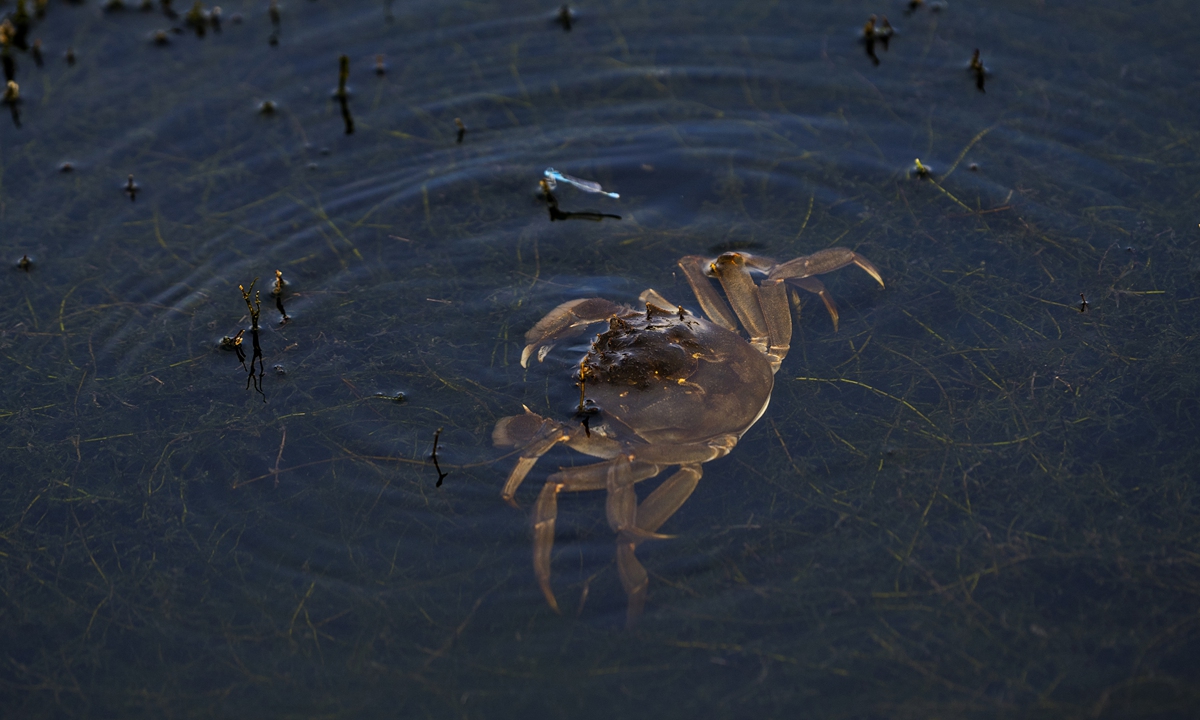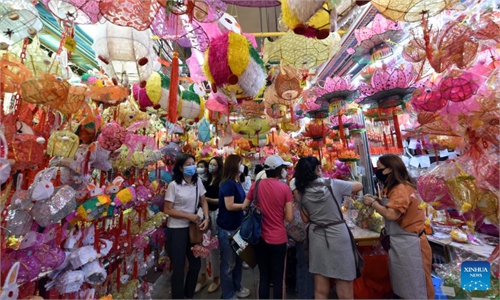
The Yangcheng Lake hairy crab Photo: VCG
One of China's premium seasonal delicacies in autumn, the Yangcheng Lake hairy crabs, may not make it to tables this coming Mid-Autumn Festival due to a prolonged heat wave and drought in the middle and lower valleys of the Yangtze River, the major farming area for the crab.
The Global Times learnt from multiple sources in the industry that crab prices are surging in the upcoming holidays due to likely lower yields.
"The overall output volume will drop because of this year's abnormal climate," Zou Xueming, a hairy crab breeder in Kunshan city, Jiangsu Province, a city next to the Yangcheng Lake, told the Global Times on Sunday.
Zou said that the Yangcheng Lake hairy crab usually start to grow in early March, and are harvested in the autumn after five times of shedding, Zou said, and the prolonged heat wave in the summer had a negative impact on crab farming.
"The crab gets bigger and bigger after each shed of their outer shell, and grow to a size suitable for harvest after the fifth time," said Zou. But the heat wave this year lagged the shedding process of crabs, and some crabs even stopped shedding after the fourth time, Zou noted.
CCTV reported on Sunday that due to the 2022 Mid-Autumn Festival falling about one week earlier than usual, and the crab yield is affected by high temperatures, leading to a shortage in the number of fresh crab.
The low output of crab before the festival has affected the price on the market. An aquatic products trader surnamed Zhang in Nanjing, capital city of Jiangsu Province, told the Global Times that most crabs currently on sale are relatively small in size compared with normal years, and that larger-size crabs will be selling at a much higher price.
Zhang said on Sunday that he has not entered the crab business this year due to the supply shortage.
Fortunately, after about one month of high temperatures in Jiangsu Province, the current temperature has fallen to below 30 C, which is the best temperature for crab farming, said Zou, and that his crabs are between their fourth and the fifth time of shedding.
Zou said he and a number of aquatic experts have taken measures to reduce the effects of the abnormal temperature such as improving water quality in breeding ponds to accelerate crab growth, and his Yangcheng Lake hairy crabs might be harvested in early October.



